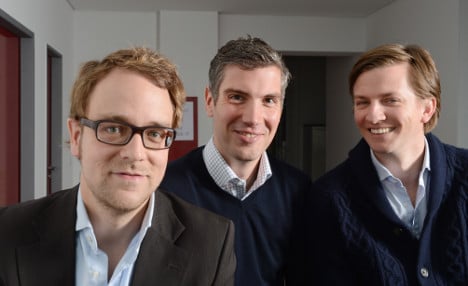The three brothers Marc, Oliver and Alexander Samwer who set up Rocket, developed it along the idea of developing internet-based companies, providing them with capital and support, until they are ready to sell or launch on stock markets.
It is behind such companies as online fashion retailer Zalando, similar sites in Russia, Asia, the Middle East and Africa. The group also owns food delivery services such as Foodpanda, and payment services including Payleven and Paymill.
The two major investors in Rocket – Kinnevik and Access – take a long view and do not exert pressure for quick profits, said Oliver Samwer in an interview on Tuesday.
“We avoid short-term thinkers such as hedge-funds. A longer view is rewarded,” he told DPA.
And those two investors contributed around $400 million recently to a war chest totalling around a billion dollars (about €764 million), which Rocket has amassed since the start of the year.
“The money will be primarily used for the international expansion of Rocket Internet,” said Samwer. “We are mostly concentrating on countries outside the USA and China, where the biggest growth in internet-reach is expected.”
The firm currently has shares in 75 firms in 50 different countries, which employ around 20,000 people.
Rocket has been repeatedly criticized for its start-ups having simply copied successful ideas already tried and tested by others. Zalando, for example, is very similar to a US operation called Zappo. Samwer said this was not important.
“New companies always build on business models which already existed somewhere in the world,” he said. There were only ever very few real original inventors, he said. “But 99 percent of the time it is the execution of the idea which decides. At the end of the day it is not about whether I had the idea first, rather that I build a company that lasts, and satisfies customers.”
The Local/DPA/hc



 Please whitelist us to continue reading.
Please whitelist us to continue reading.
Member comments